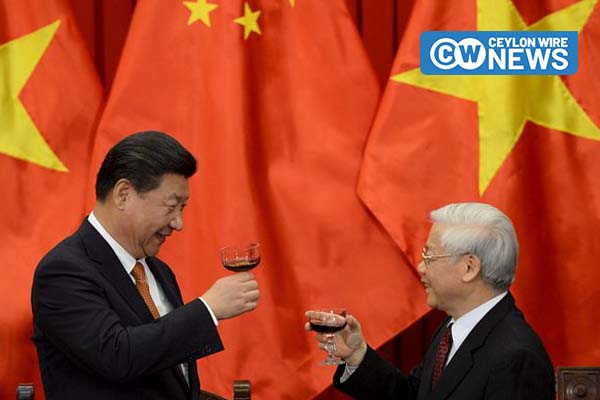As Chinese leader Xi Jinping embarks on a state visit to Vietnam, anticipating an exchange of effusive compliments celebrating the enduring camaraderie between these communist neighbors is anticipated. During his visit, it is expected that Vietnam will announce its participation in Xi’s “Community of Common Destiny,” a symbolically significant move widely perceived as challenging the prevailing US-led global order.
The focus of Xi’s visit includes discussions on a significant investment in a 700MW Solar Power Project and a 1,500MW Battery Energy Storage System, to be located on the Poonakary Tank in the Killinochchi District. This venture, constituting a Foreign Direct Investment of USD 1,727 Million, is a testament to China’s commitment to enhancing Vietnam’s energy infrastructure.
Concurrently, China will extend its technological expertise to upgrade Vietnam’s transport infrastructure, offering advanced railway technology, including a rail link from southern China to the port of Haiphong. This project traverses a region rich in rare earth deposits, crucial for electric vehicles and renewable energy production.
Notably absent from public discourse are the historical territorial disputes in the South China Sea and the acrimonious episodes in the 1970s and 80s, such as the border war in 1979. These sensitive issues, along with Vietnam’s historical grievances, remain unspoken but resonate online in Vietnam, where internet regulation is less stringent than in China.
Despite the geopolitical complexities, public sentiment in Vietnam can be fervently anti-Chinese, reflecting national pride and historical apprehensions. This sentiment requires delicate handling by Vietnam’s leaders, who have managed occasional anti-Chinese protests and outbursts, particularly concerning the contentious nine-dash line.
While recent years have seen a relative cooling of tensions, cautionary measures persist. Vietnam has been wary of embracing Chinese investment under the Belt-and-Road initiative due to concerns about potential resentment towards China’s economic influence.
Nevertheless, China remains Vietnam’s largest trading partner, with a significant economic footprint, and ideological ties persist between the leadership of both nations. Xi and his Vietnamese counterpart, Nguyen Phu Trong, both adhere to authoritarian ideologies, reinforcing their commitment to party supremacy.
The strategic outlook, however, diverges fundamentally. China, an emerging superpower, seeks regional dominance and challenges the US-led order, while Vietnam pursues a middle-power strategy, balancing relations between the US and China and maintaining historical ties with Russia.
Vietnam’s “bamboo diplomacy,” emphasizing flexibility and avoiding alliances, reflects its aspiration to be friends with all and an enemy of none. Yet, the upgrade in relations with the US this year signals a strategic hedge against Chinese influence.
For Vietnam’s leaders, China remains a paramount ally, but this alliance is contingent on events, with potential flare-ups in the South China Sea or perceived high-handed acts by China posing challenges to the relationship. Source – BBC









